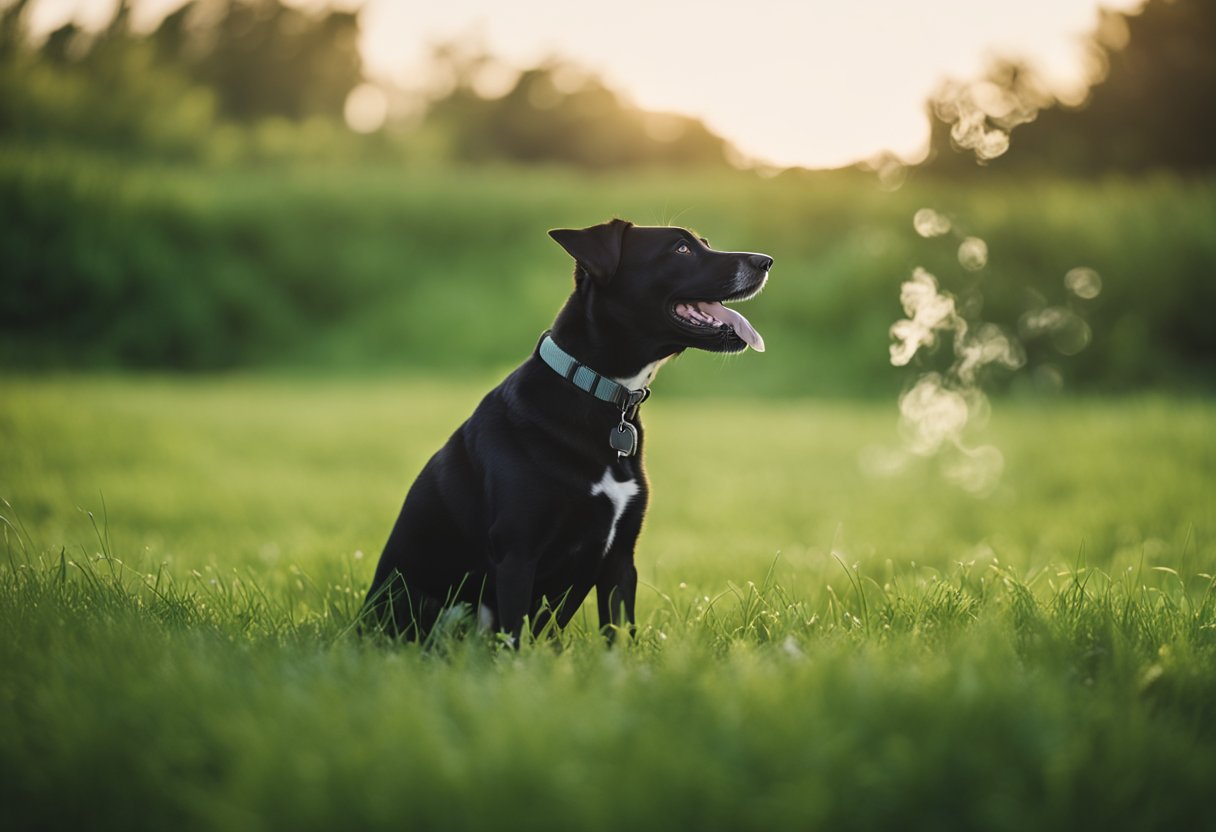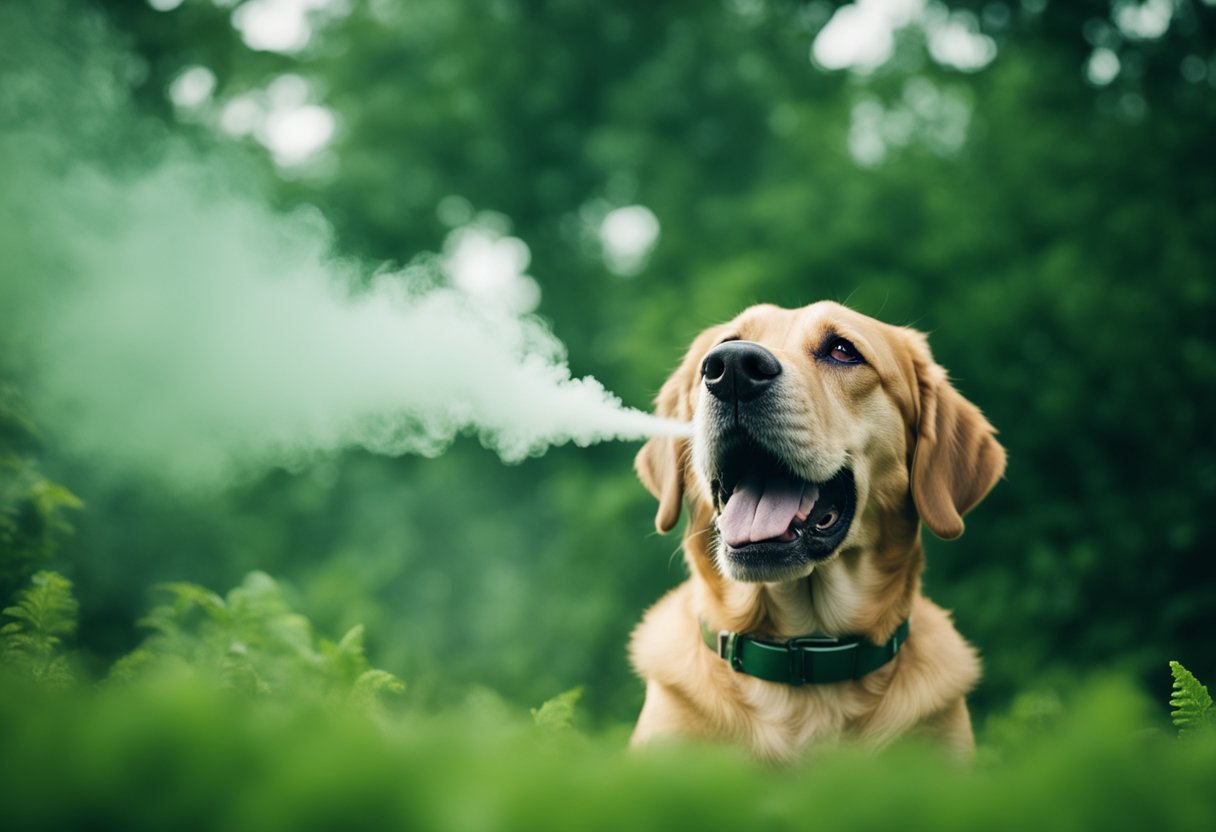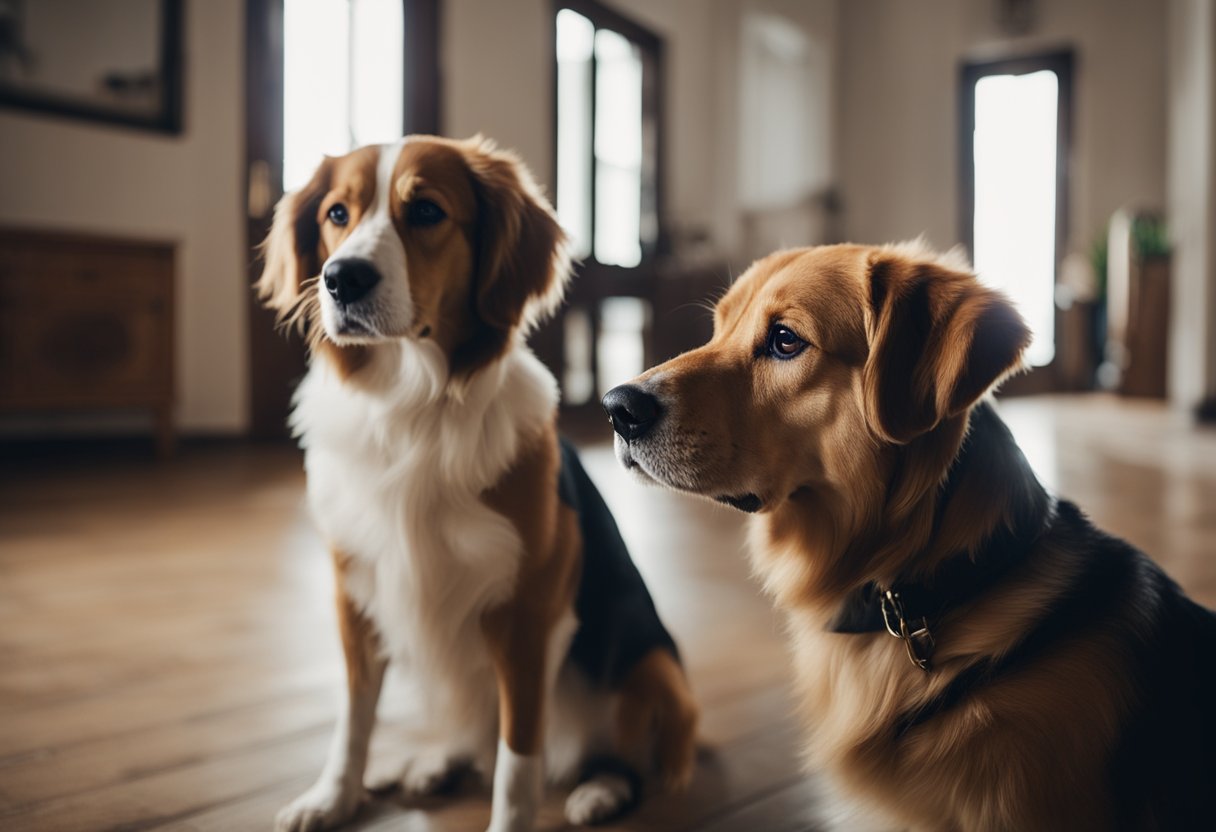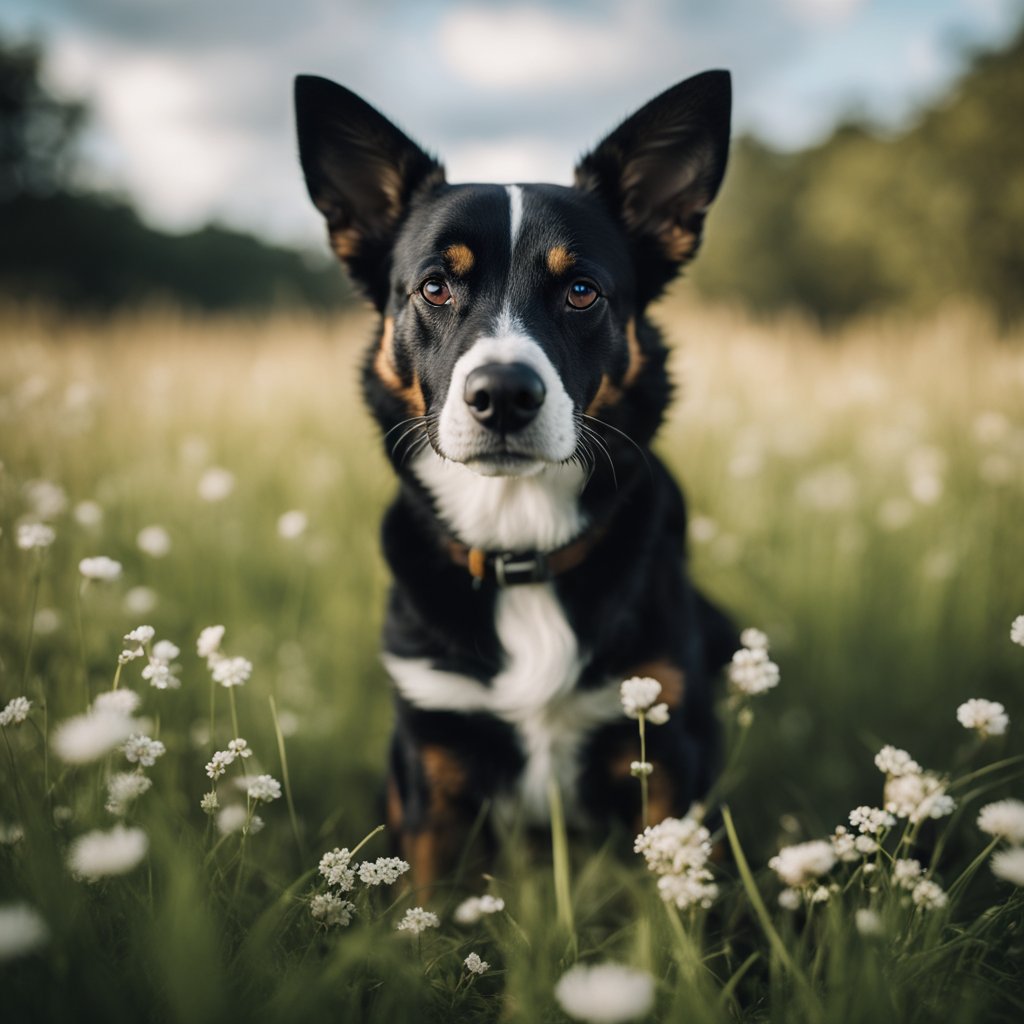Do Dogs Fart? The Truth About Canine Flatulence
Dogs are known for their loyalty, playfulness, and of course, their ability to pass gas. Anyone who has spent time around dogs knows that they can produce some pretty pungent farts. But have you ever wondered why dogs fart and what you can do about it? In this article, we will explore the topic of dog farts and provide some insights into what causes them, how to prevent them, and when to be concerned.

Canine Digestion and Gas Before we dive into the topic of dog farts, it’s important to understand how a dog’s digestive system works. Dogs are omnivores, which means they can eat both meat and plant-based foods. Their digestive system is designed to break down these foods and extract the nutrients they need to thrive. During this process, gas is produced as a natural byproduct. In most cases, this gas is expelled through the rectum, resulting in a fart.
Understanding Dog Farts While dog farts are a natural part of the digestive process, excessive farting can be a sign of a problem. Some dogs are more prone to farting than others, depending on their breed, diet, and overall health. Certain foods, such as beans, dairy, and soy, can also cause dogs to produce more gas. In some cases, excessive farting can be a sign of an underlying health condition, such as inflammatory bowel disease or pancreatitis. If you notice that your dog is farting more than usual or has other symptoms, such as diarrhea or vomiting, it’s important to consult with your veterinarian.
Key Takeaways
- Dogs fart as a natural byproduct of the digestive process.
- Excessive farting can be a sign of a problem, such as a dietary issue or underlying health condition.
- If your dog is farting more than usual or has other symptoms, consult with your veterinarian.
Canine Digestion and Gas

As a dog owner, you may have noticed that your furry friend occasionally passes gas. While it may be a normal bodily function, excessive flatulence can be a sign of underlying digestive issues. In this section, we will discuss the causes of gas in dogs, the role of diet in digestive health, and common digestive issues that can lead to excessive flatulence.
Causes of Gas in Dogs
There are several reasons why a dog may experience gas. Some common causes include:
- Swallowing air while eating or drinking
- Eating too quickly
- Consuming table scraps or foods that are difficult to digest
- Food allergies or intolerances
- Bacterial imbalances in the gut
Diet and Digestive Health
Your dog’s diet plays a crucial role in their digestive health. Feeding your dog a high-quality, easily digestible diet can help reduce the amount of gas they produce. Look for dog food that contains high-quality protein sources, such as chicken or lamb, and avoid foods that are high in fillers or artificial ingredients.
In addition to choosing the right food, it’s important to pay attention to how you feed your dog. Feeding smaller, more frequent meals can help prevent your dog from eating too quickly and swallowing air. You may also want to consider using a slow feeder bowl or puzzle toy to encourage your dog to eat more slowly.
Common Digestive Issues
While occasional flatulence is normal, excessive gas can be a sign of underlying digestive issues. Some common digestive issues that can lead to excessive flatulence include:
- Inflammatory bowel disease (IBD)
- Pancreatitis
- Intestinal parasites
- Food allergies or intolerances
If you notice that your dog is experiencing excessive gas, you should consult with your veterinarian to rule out any underlying health issues. Your vet may recommend dietary changes, probiotics, or other treatments to help manage your dog’s digestive health.
Understanding Dog Farts

As a dog owner, you may have experienced your furry friend letting out a stinky fart from time to time. While it may be unpleasant, dog farts are a normal part of their digestive process. In this section, we will explore the frequency and normalcy of dog farts, as well as when to consult a vet.
Frequency and Normalcy
Dogs, like humans, produce gas as a byproduct of digestion. It’s normal for dogs to fart occasionally, and the frequency can vary depending on factors such as diet, age, and breed. Some breeds, such as Bulldogs and Pugs, are more prone to flatulence due to their short snouts, which can cause them to swallow more air when eating or drinking.
While dog farts can be smelly, they should not be excessively so. If your dog’s farts are particularly noxious, it may be a sign of an underlying health issue or dietary problem. In such cases, it’s best to consult with your veterinarian to determine the cause and appropriate treatment.
When to Consult a Vet
While occasional farting is normal, excessive flatulence can be a sign of a more serious problem. If your dog is farting excessively, it may be a sign of an underlying health issue such as colitis, food allergies, or intolerances. Additionally, if your dog’s farts are accompanied by other symptoms such as vomiting, diarrhea, or abdominal pain, it’s important to seek veterinary care immediately.
In some cases, dietary changes may be necessary to reduce your dog’s flatulence. Your vet may recommend a different type of food or suggest adding probiotics to your dog’s diet to aid in digestion. It’s important to follow your vet’s recommendations and monitor your dog’s symptoms closely to ensure they are getting the care they need.
In conclusion, dog farts are a normal part of their digestive process, but excessive flatulence can be a sign of an underlying health issue. By understanding the frequency and normalcy of dog farts, as well as when to consult a vet, you can ensure that your furry friend stays healthy and happy.
Resources

If you’re looking for more information on whether dogs fart or not, here are some resources that can help you:
- American Kennel Club: This website provides some tips on how to stop dog farts. According to the article, it’s normal for dogs to fart, but excessive farting could be a sign of a medical or dietary issue. The article recommends talking to your veterinarian if you’re concerned about your dog’s farting habits.
- The Dodo: This website provides some general information about dog farting. The article notes that most gas should be odorless and that smelly farts could be a sign of a problem. The article also suggests that you should pay attention to your dog’s diet and talk to your veterinarian if you’re concerned.
- Hepper: This website provides some information on why dogs fart. The article notes that it’s normal for dogs to fart, but excessive farting could be a sign of a food intolerance or other issue. The article also suggests that you should talk to your veterinarian if you’re concerned.
- Rover: This website provides some tips on how to reduce your dog’s farting. The article notes that feeding your dog smaller, more frequent meals can help reduce gas. The article also suggests that you should talk to your veterinarian if you’re concerned.
Remember, if you’re concerned about your dog’s farting habits, it’s always best to talk to your veterinarian. They can help you determine if there’s a problem and provide you with advice on how to address it.
Conclusion

In conclusion, dogs do fart, and it’s a completely normal part of their biological process. However, excessive flatulence can indicate a problem with your dog’s digestive system or diet. If you notice that your dog is farting more than usual, you should consider making some changes to their diet and exercise routine.
Some possible causes of excessive flatulence in dogs include food intolerance, eating too quickly, and consuming table scraps or treats. To reduce your dog’s flatulence, you should consider feeding them smaller, more frequent meals, avoiding large meals, and adding probiotics to their diet.
Remember, dogs don’t fart on purpose, and while their farts may be unpleasant, they are not harmful to your health. If you have any concerns about your dog’s flatulence or digestive health, you should consult with your veterinarian to determine the underlying cause and develop an appropriate treatment plan.
Frequently Asked Questions

Why do some dog breeds seem to pass gas more frequently?
Some dog breeds are more prone to flatulence than others. Breeds with short snouts, such as bulldogs and pugs, tend to swallow more air when they eat or drink, leading to more frequent gas. Additionally, dogs that are overweight or have digestive issues may also experience more flatulence.
Can dogs control when they pass gas, or is it an involuntary action?
Dogs cannot control when they pass gas, as it is an involuntary action. However, they may be able to control the frequency and intensity of their flatulence by making dietary changes or adjusting their eating habits.
What causes a dog’s flatulence to have a strong odor?
A dog’s flatulence may have a strong odor due to the foods they eat or underlying health issues. Foods that are high in sulfur, such as eggs and broccoli, can lead to extra stinky farts. Additionally, dogs with digestive issues or intestinal parasites may experience more foul-smelling flatulence.
How often is it normal for a dog to pass gas in a day?
It is normal for dogs to pass gas several times a day. However, the frequency and intensity of their flatulence may vary depending on their diet, health, and other factors.
Is it common for dogs to expel gas audibly, or are they usually silent?
Dogs may expel gas audibly or silently. The sound of a dog’s flatulence may vary depending on the amount of gas being released and the position they are in when they pass gas.
Should I be concerned if my dog suddenly starts to have more frequent flatulence?
If your dog suddenly starts to have more frequent flatulence, it may be a sign of an underlying health issue. You should consult with your veterinarian to rule out any potential health problems.
